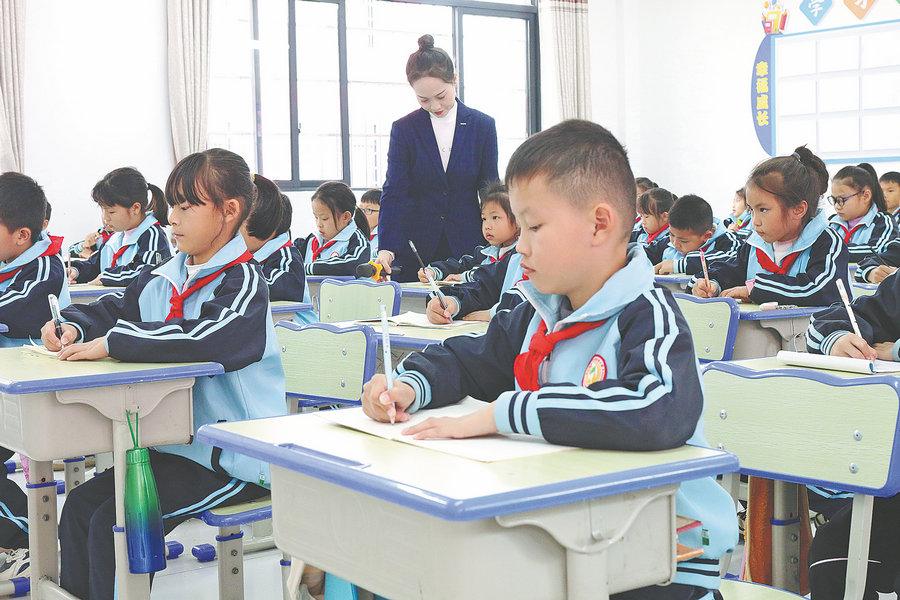

Children from neighboring villages, whose parents had left home to earn a living in bigger cities, have also been encouraged to join the school.
Yet, it soon came to Chen's attention that the infrastructure upgrade was not enough.
He noticed that the insufficient learning resources for comprehensive development courses were a major obstacle against rural schools, and he knew he had to do something.
"I found out that the school actually has an 'all-in-one' multimedia teaching machine that can be connected to teaching resources outside through the network," Chen says.
Then he came up with the idea of tapping into the rich urban education supplies and transferring them to the rural classroom via the internet.
Since Du'an got out of poverty in 2020, the county has installed more than 2,200 such multimedia machines for about 400 local middle and primary schools through an "education informatization" project.
Jiaquan village is one of them.
"Now that villages have all been connected to the internet, while many of my classmates and friends have teaching support experience and care about rural education, it's possible to bring the two sides together," Chen explains.
His idea of the cloud classroom immediately got support from the local government and volunteers.
Faculty members and graduates from Peking University contributed to the design of the curricula.
The idea is to have experts from all walks of life to give lectures that are tailored to the needs of students in the fourth to sixth grades.
"The content will not be about school subjects, but focus on traditional culture," Chen says, adding that the goal is to have children exposed to art and science, such as poetry, calligraphy and music, and broaden their horizon.
Zhao Yanfen, associate professor from the School of Chinese As a Second Language, Peking University, was invited to serve as a teacher and chief consultant in course design.
"Our starting point is to enable children to be exposed to the essence of good traditional culture from an early age and to nourish their bodies and minds with rich extracurricular knowledge," Zhao says.
"At the same time, we add music, calligraphy, psychological education, astronomy and other courses so that children can better perceive the truth of how to conduct themselves," Zhao says.
To date, professors from the Peking University, researchers from the Palace Museum, teachers from the China National Opera and Dance Drama Theater, as well as college students from the Beijing Normal University and the Minzu University of China have all joined Chen's cause, which took off in March.
The online classes have become a hit with students since the launch. "We make use of the 'interest-fostering class' time and give the children a weekly livestreaming class," he says.
"A total of 10 classes have been tried in Jiaquan village, and the children have positively changed a lot and quickly, which gave us a lot of confidence."
Word spread fast, especially in the rural areas of Du'an where educational resources are eagerly sought.